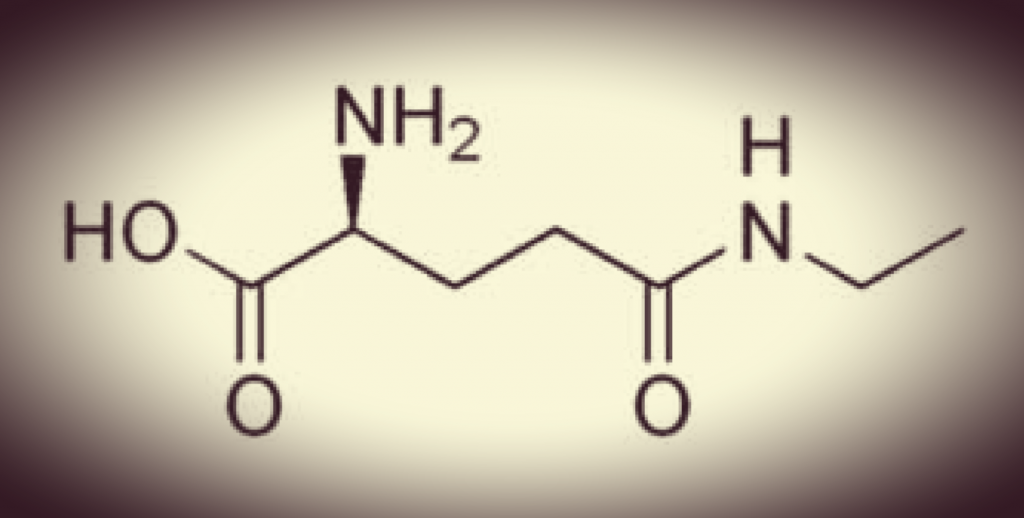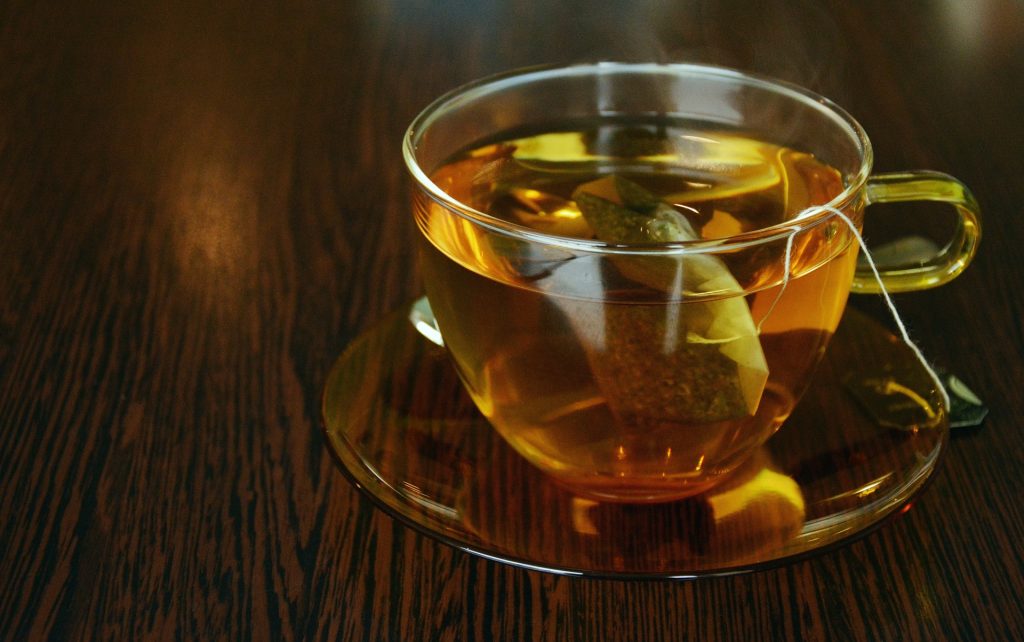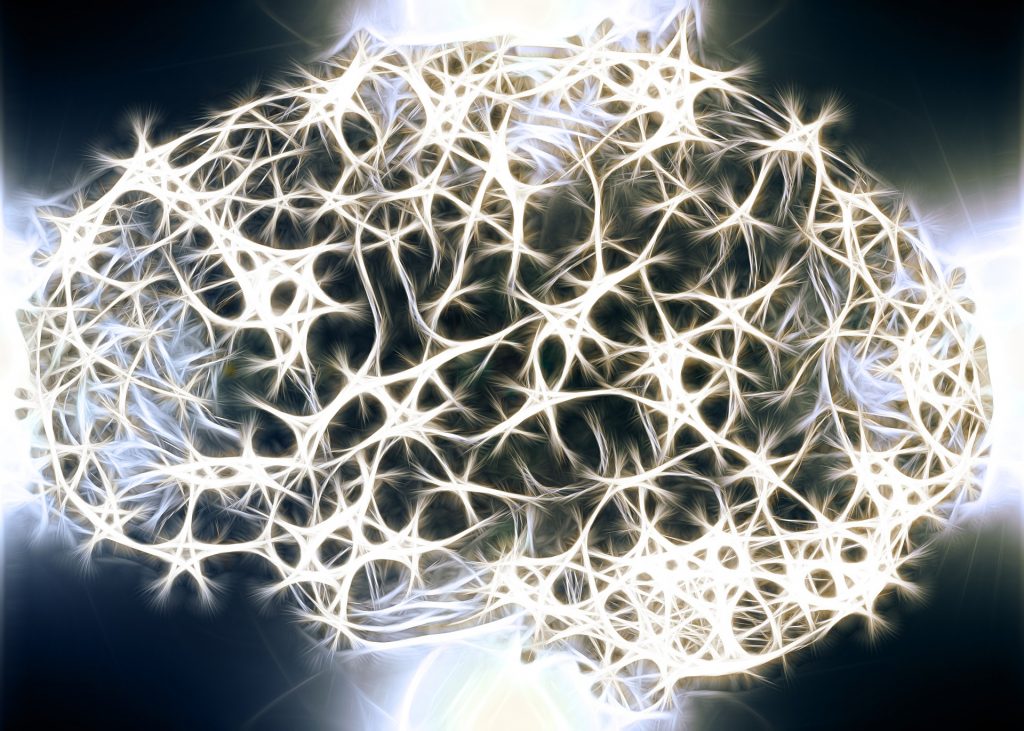 L-theanine is an amino acid found almost exclusively in tea (the Camellia sinensis plant). Chemically L-theanine is called 𝛾-glutamylethylamide. This amino acid does not form proteins like many other amino acids, but instead is found in its free-form. L-theanine is present in tea plants because the plant uses the L-theanine to synthesise antioxidant catechins. The time of harvest and the synthesis rate of catechins can therefore have a strong influence on the concentration of L-theanine in the tea leaves. L-theanine is also available as a supplement in tablet, capsule or powder form.
L-theanine is an amino acid found almost exclusively in tea (the Camellia sinensis plant). Chemically L-theanine is called 𝛾-glutamylethylamide. This amino acid does not form proteins like many other amino acids, but instead is found in its free-form. L-theanine is present in tea plants because the plant uses the L-theanine to synthesise antioxidant catechins. The time of harvest and the synthesis rate of catechins can therefore have a strong influence on the concentration of L-theanine in the tea leaves. L-theanine is also available as a supplement in tablet, capsule or powder form.
How much L-theanine is there in tea?
On average, about 1 to 2 % of the dry weight of tea leaves is L-theanine. It has been estimated that tea generally contains between 10 and 20 mg of L-theanine per 200 mL cup. Green tea may contain slightly more L-theanine. Three to four cups of green tea have been estimated to contain roughly 60 to 160 mg L-theanine. However, one study found that a 200 mL cup of green tea contained 7.9 mg of L-theanine, whereas a 200 mL cup of black tea contained 24 mg L-theanine. Therefore the exact about of L-theanine is a single cup of tea may vary considerably. It is likely that both black and green tea are good sources of L-theanine and that both contain similar levels of the amino acid when measurements are averaged out.

The chemical structure of L-theanine. L-theanine is an amino acid found almost exclusively in tea. Although L-theanine is an amino acid, it does not form as part of a protein, but is found in its free form only.
Why is L-theanine of interest?
L-theanine is of interest because it may have a number of physiological effects. These effects have been well reported in nutritional studies. The most well researched of these effects is the ability of L-theanine to cause relaxation. This may explain the relaxing effect of tea. Other effects include a contribution to the weight loss effects of tea. This means that L-theanine may have some very beneficial health effects in humans that drink tea.
How does L-theanine cause relaxation?
L-theanine facilitates the generation of alpha waves from the brain. These waves form in the 8 to 14 Hz range. These waves are associated with feelings of alert relaxation. The alpha wave stimulating effects of L-theanine have been reported to provide a significant anti-stress effect, and this effect is particularly noticeable in those who normally have high levels of anxiety. The reduction in the worry and anxiety associated with stress, then allows the brain to focus more clearly and this can aid concentration.

Both green and black tea are good sources of L-theanine. Most studies have found that green tea contains slightly higher concentrations of L-theanine. However one study found significantly higher concentrations of L-theanine in black tea compared to green tea.
Does L-theanine cause fat loss?
Animal experiments show that L-theanine can improve the fat loss experienced by mice when in combination with caffeine. As L-theanine and caffeine are present in green tea, this may explain the consistent findings in the literature that show that green tea is able to cause fat loss.
How does L-theanine work?
It is not fully understood how L-theanine has its physiological effects. L-theanine may be able to increase alpha wave state in the brain through its ability to block the binding of a neurotransmitter called L-glutamic acid to its glutamate receptor. Glutamic acid is an excitatory neurotransmitter that increases excitatory responses in the brain, and so by blocking this neurotransmitter L-theanine may have a relaxing effect. It is unknown how L-theanine aids in the fat loss effects of caffeine in green tea. However as L-theanine is able to reduce levels of stress, and stress is associated with eating refined carbohydrates, one possibility is that L-theanine is able to alter the eating behaviour of the consumer.

L-theanine can increase the alpha wave state of the brain. This induces a calm relaxation that can reduce anxiety and increase concentration and focus.
How do I take L-theanine?
The only rich source of L-theanine in the diet is tea. Drinking tea is therefore the most natural way to obtain L-theanine. Green tea may contain slightly more L-theanine that black tea, but there are large variations in the amount of L-theanine in different brands, varieties and crops of tea and so this is a very rough generalisation. Drinking tea is a good way to obtain L-theanine, but tea also contains caffeine and some wish to avoid the stimulatory effects of caffeine. Supplements of L-theanine as tablets, capsules or powder are therefore one alternative. L-theanine is a colourless and tasteless white powder that mixes easily with water. Generally capsules of L-theanine are available in 100 to 300 mg sizes and powder can be obtained between 50 grams and 1 kg. Mixing in liquids to form a drink would perhaps be the best way to consume the powder. Taking 100 mg of L-theanine as a supplement three times a day with food would be a generalised basis for a supplemental regimen.
Eat Well Stay Healthy, Protect Yourself
RdB
